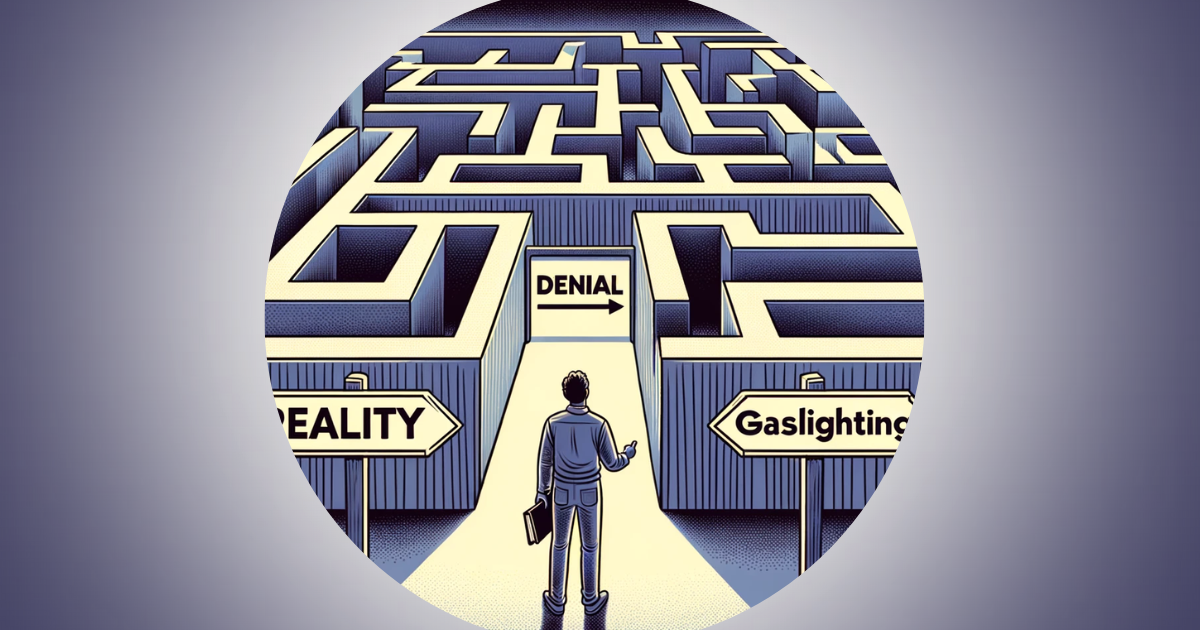We frequently hear the word Gaslighting these days, but it really only became popular in the mid-2010s and is now used more generally as a description of psychological manipulation.
It is used to describe having one’s reality repeatedly questioned by another person and comes from the 1944 film, Gaslight. In the film, the husband manipulates his wealthy wife into thinking she is mentally ill, with the intention of stealing from her. Part of this manipulation is to adjust the gas lighting levels in the home – hence ‘Gaslighting’.
Gaslighting isn’t just someone trying to influence another, nor is it a normal falling out within a relationship. Disagreements are normal in a relationship and there tends to be room for compromise, negotiation, even agreeing to disagree. This is different – this is a way for the Gaslighter to feel in control; a conscious intent to brainwash.
Gaslighting behaviour can include the following:
- Countering – questioning beliefs and memories ‘Are you sure…’
- Withholding – pretending not to understand
- Trivialising thoughts and feelings – ‘You are overacting/just being oversensitive.’
- Discrediting – affecting other people’s impressions of the person
- Denial – not taking responsibilities for their actions, denying events happened, shifting the blame
- Inventing events – rewriting history
- Diverting – changing the focus of conversations away from the topic
Gaslighting can lead to the following in the person who is the recipient of these behaviours:
- Feeling uncertain of perceptions
- Questioning memories of events
- Believing they are irrational or mentally ill
- Feeling incompetent, worthless
- Becoming withdrawn, isolated from family and friends
- Possibly defending the abuser’s behaviour to family and friends
It is important that the recipient of Gaslighting behaviour takes action in the following ways:
- Attempt to set boundaries with the abuser – let them know what is not acceptable
- Keep a journal – record the behaviour, if only to convince themselves at first that the behaviour is not healthy
- Distance themselves from the abuser, if this is possible
- Talk to someone – a friend, a family member
- If the abuse persists, talk with a mental health professional
The Gaslighter
To end the cycle of Gaslighting behaviours, the Gaslighter needs to attain greater emotional awareness and self-regulation. Those receiving the behaviours must learn that they don’t need others to validate their reality. They need to gain self-reliance and confidence in defining their own reality. This may require help from a mental health professional.
This type of behaviour will often persist and can develop into more serious physical abuse. As the recipient of the behaviour becomes less resilient due to lack of self-esteem, self-confidence, and self-belief, it gets more difficult to ask for help. It may be that a friend or family member needs to step in.
The following agencies can help:
The National Domestic Abuse helpline: www.nationaldahelpline.org.uk; 08082000247 (open 24 hrs/day, every day)
Men’s Advice Line : www.mensadviceline.org.uk; 0808 8010327 : Monday – Friday 10am – 8pm
Galop : National LGBT+ Domestic Abuse helpline : 0800 999 5428 : Monday – Friday 10am – 5pm.

